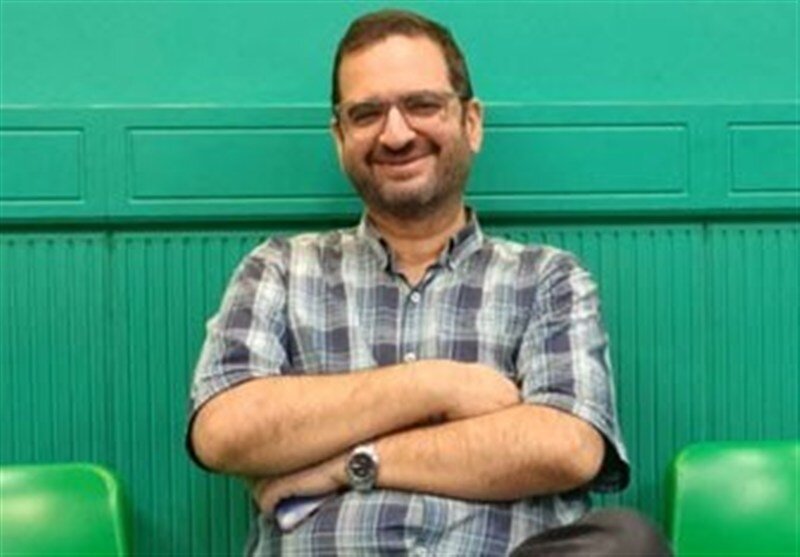The strange will of the martyr of the Israeli attack

TEHRAN- Wife of Martyr Rajabpour: Mr. Jebeli, Head of IRIB, Insisted Nimā Must Be Buried in the Media Martyrs’ Section; Yet Section 42 Was Prepared for the Victims of the Israeli Attack. I Decided to Wait and See Where He Himself Would Wish to Rest.
Dyou know why someone who gives their life for God becomes the heart of history? As Shariati once wrote: “Now the martyrs are dead, and we the dead are alive. The martyrs spoke their words, and we, the deaf, are their audience. Those who dared – when they could not remain alive – to choose death, departed, and we shameless remain, lingering for hundreds of years.”
Death awareness at the height of youth
A person’s entire being begins with their choices—choices that direct their steps and the path they take. When Nimā decided which book to read, what topic to pursue, and whom to choose as his life partner to share the lifestyle he had chosen, it was clear that at age 21 he had already understood what he was searching for. This understanding is a precious pearl not granted to everyone.
His wife, Zahra Hosseinzadeh, who lived alongside Nimā Rajabpour since she was 19, shares brief yet poignant memories of her husband: “Nimā was 21 when we married. We were classmates; he studied mechanical engineering. He didn’t have a steady job yet when he proposed. Our marriage was a student marriage. The Supreme Leader even gifted us a Bahar-e Azadi gold coin, which we sold to pay two months’ rent.”
“I am servant of Ali (AS)!”
During their engagement and early married life—the most romantic period—they often visited the Golzar Behesht Zahra, Section 72, where many martyrs are laid to rest. Nimā was a devotee of Martyr Rajāei. The first book he brought home and repeatedly read was about the life and conduct of Martyr Rajāei during his presidency. He wanted to learn how to behave in an administrative environment. He chose the name “Ali” for himself but later said the name was too grand, so he introduced himself as “Gholam Ali” (Servant of Ali), even signing documents as “Gholam!”
Though a mechanical engineer, Nimā refused to do just any work. Six months after marriage, he sold goods on the street to make a living and spoke of those days with pride—until he joined IRIB. After joining the news network, their home became a second office, but he acted in a way that none of them complained.
Martyr Rajāei: Nimā’s spiritual father
Nimā saw himself as a soldier of Martyr Rajāei and Martyr Raeisi, considering Rajāei his spiritual father. He frequently contributed voluntarily and without compensation to magazines dedicated to martyrs.
On 23 Khordad (June 13), when the Israeli attack took place, Nimā was sleeping at home. Zahra called him and asked what was going on. He quickly got ready and left for work, even though it wasn’t his shift—work commitment was his priority. When IRIB was hit and Zahra witnessed Sahar Emami’s collapse live, her heart broke. Their daughter Mahla called Nimā, who answered saying, “IRIB was hit but I’m okay.” Later, he spoke with Zahra’s brother saying he was injured and being transferred to Shohada Tajrish Hospital.
The last time I saw my husband—drenched in blood
They rushed to the hospital to find Nimā covered in blood, still breathing but with severed arteries in his limbs and a large blood bag attached to his abdomen. He was rushed into surgery at 12:45 a.m., remaining in the operating room for five hours before being moved to ICU, pale from blood loss. Around 4 a.m., doctors informed them with regret.
“Dad, please show me our home when you return”
Mahla resembles her father in temperament. Despite some recent differences in thought, she always respected him. At her father’s bedside, she wrote in her own handwriting: “Dad, please show me our home when you come back.”
When it came time to transfer Nimā’s body to Behesht Zahra Cemetery, Mr. Jebeli, IRIB’s chief, strongly insisted he be buried in the Media Martyrs’ Section. However, Section 42 had been prepared for the victims of the Israeli attack. Zahra decided to wait to see where Nimā himself would have wanted to be. Interestingly, he was buried only meters away from Martyr Rajāei, in the front rows of Section 42, one of the closest plots to Section 72.
She always says: “Nimā, how beloved you were to God.”
The final return
Friends later told Zahra that Nimā and colleagues tried to evacuate others quickly during the attack, insisting women leave first, saying “You might get hurt during evacuation.” Nimā was among the last to leave. About 30 seconds before the explosion, he even took a photo with two friends. Then, somehow, he returned inside—and what should never have happened, happened.
“I want to die at the hands of the most wicked people!”
Born in 1977 (year 56 in the Iranian calendar), Nimā wrote a will at age 21 that reads as if it were penned just a week ago: “I want to be killed by the most wicked people!”
(Source: Tasnim News Agency)
Leave a Comment